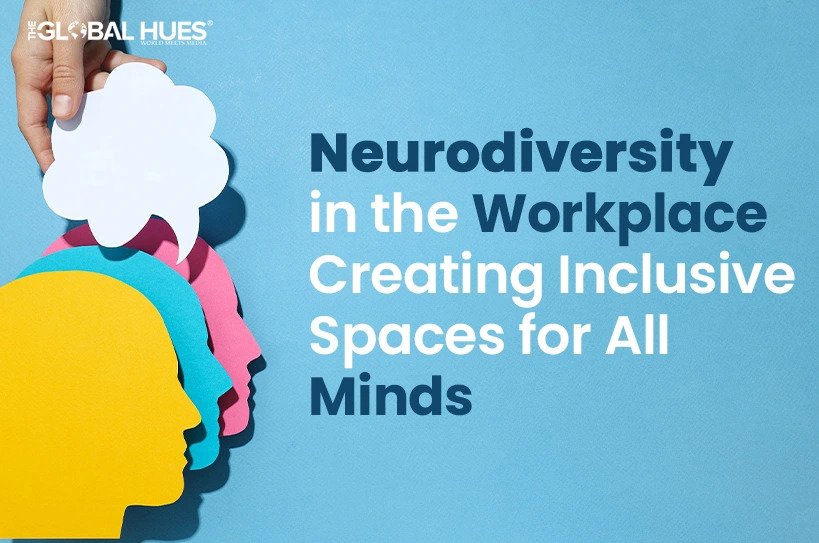Creating a workplace that values neurodiversity goes beyond following regulations or completing mandatory tasks. It’s about developing a culture where individuals’ strengths are recognized and supported.
However, this becomes even more complex in a remote setting as each person brings their specific needs and contributions to the team.
So, how can you foster an environment where neurodivergent employees, with their remarkable abilities and perspectives, can truly thrive?
This article explores actionable strategies for fostering neurodiversity in the workplace and creating a supportive environment for all employees. Remote PC monitoring software can provide the insights you need to understand your team’s strengths better and help you manage performance in a way that works for everyone.
Common Obstacles in Supporting Neurodivergent Employees
Building a remote workplace where everyone feels included begins with genuinely understanding the daily challenges neurodivergent employees face. When we overlook these challenges, it’s easy to create barriers that leave individuals feeling frustrated, unheard, and disconnected from their team.
Here are some of the daily challenges neurodivergent employees may encounter:
- Navigating conversations: Sharing ideas or interpreting messages might not always fit the expected mold, sometimes resulting in crossed wires.
- Connecting with others: Forming genuine relationships at work can feel difficult, especially when the usual social scripts don’t quite resonate.
- Sensory overwhelm: Busy or unorganized environments can be distracting, even suffocating, making it harder for neurodivergent employees to focus and stay composed.
Building a Workplace Where Neurodivergent Employees Can Thrive
By blending intentional strategies with the right monitoring tools, you create a system that identifies where assistance is needed, nurtures development, and ensures no one falls through the cracks.
Together, these steps lay the foundation for a remote workplace where every individual can truly excel.
Here’s how you can make it happen:
Set Clear Communication & Expectations
Neurodivergent employees might find indirect messages or unclear instructions challenging, especially in a remote setting where face-to-face clarification isn’t always possible. Keeping communication straightforward and easy to follow is essential.
Use brief, precise language when assigning tasks or providing feedback to avoid confusion. Break larger projects into smaller, more manageable steps to help employees stay focused and on track.
Frequent check-ins play a key role, especially in remote settings, as they help clear up any confusion and offer extra direction when needed. Keeping communication lines open ensures neurodivergent employees feel assured and fully supported in their responsibilities.
A monitoring tool can enhance this process by tracking progress and identifying areas where additional support or clarity is needed. It can also offer insights to help you provide more personalized assistance.
Offer Flexibility and Structure
Neurodivergent employees often excel when their work environment balances flexibility and structure. Allowing them to choose their own hours helps them work during their most productive times, boosting overall performance.
Break tasks into smaller, manageable steps with clear deadlines to provide structure. Define precise expectations so employees are fully aware of their responsibilities and deadlines.
Support using time management methods, such as allocating specific time slots for tasks or implementing ranking systems for priorities, to help maintain focus and sustain productivity.
Robust monitoring software can break down tasks and project management by tracking time spent on specific projects and tasks, providing clear insights into progress. It can also support time management by sending reminders and helping employees prioritize tasks, ensuring they stay focused and organized.
Ensure Sensory Comfort
While home offices offer a more flexible and comfortable setting, sensory overload can still pose a challenge for neurodivergent employees. It’s important to support them by providing practical resources and guidance to manage sensory experiences.
Encourage employees to tailor their workspace to minimize distractions, whether by using noise-canceling headphones, soft lighting, or quiet zones. Where possible, offer assistance with home-office tools like adjustable desks or calming items that foster focus and well-being.
Create a culture where employees feel safe sharing if they experience overstimulation and regularly check in to ensure their environment is conducive to productivity. Helping them adjust their space empowers neurodivergent employees to stay focused and comfortable in their work.
Encourage Social Connection & Team Engagement
Building connections in a remote work setup can be challenging for neurodivergent employees, as the typical in-person exchanges are absent. Creating chances for authentic engagement and relationship-building is vital to promoting a sense of inclusion.
Plan virtual activities that combine structured tasks with casual interactions, allowing everyone to participate in a relaxed setting. Schedule consistent one-on-one meetings through video or phone calls to provide employees with a confidential and encouraging space to share concerns or brainstorm ideas. Additionally, consider hosting “open office hours” for casual, off-topic chats to help foster connections and ease social tensions.
These efforts ensure neurodivergent employees feel seen, valued, and connected, strengthening team bonds from a distance.
Support Neurodivergent Employees with Real-Time Insights
To further improve the remote work environment for neurodivergent employees, consider using monitoring tools that provide valuable insights into productivity and well-being. These tools guide managers in offering tailored support to their teams.
Here’s how a monitoring tool can help:
- Time tracking & activity monitoring: Tracks productivity patterns, identifying shifts or delays that may indicate stress, enabling early intervention.
- Personalized feedback: Offers dashboards where employees can view their progress, highlighting areas for growth and encouraging self-improvement.
- Task & project management: Helps break down tasks into manageable steps, set priorities, and deadlines, offering the structure neurodivergent employees need to succeed.
- Flexible data tracking: Customizes tracking to focus on relevant activities, preventing employees from being overwhelmed by irrelevant data.
Conclusion
Designing a remote workplace where neurodivergent employees can truly flourish involves cultivating a space that honors their individual abilities. Centering on clarity, flexibility, and customized support builds a strong framework for genuine achievement.
Leveraging immediate feedback and actionable insights allows you to adjust and deliver the resources people need, ensuring they feel valued and empowered to excel.
This ongoing dedication to inclusion fosters a culture where individual growth and team collaboration can thrive.
(DISCLAIMER: The information in this article does not necessarily reflect the views of The Global Hues. We make no representation or warranty of any kind, express or implied, regarding the accuracy, adequacy, validity, reliability, availability or completeness of any information in this article.)




